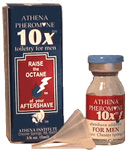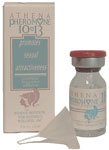Seeking Natural Remedies for Hot Flashes

Click here to watch the recent video interview of Dr. Cutler
discussing her new book; Hormones and Your Health
Click here to read more on the topics from chapter excerpts of Dr. Cutler's new book; Hormones and Your Health
Copyright 2009 ©The New York Times newspaper.
Dr. Cutler is quoted in
Camille Sweeney's "Skin Deep" Column contribution for The New York Times. Published July 1, 2009.
She appreciated Ms. Sweeney's article topic as complex and explains the science behind alternative therapies in her book.
(Article Excerpt) ... Gynecologists estimate that a third of women seeking treatment for menopausal symptoms are on conventional prescription hormones. Another third are on prescription bio-identical therapy. (Bio-identical hormones are synthesized compounds that mimic the molecular structure of human hormones and are derived from plants.)
The remaining third either tough it out, are not bothered by symptoms or are searching for over-the-counter therapies, including natural supplements and topical creams. They may try, for example, a supplement of phytoestrogens derived from soy and red clover, a low-dose progesterone cream, or swear by black cohosh capsules.
In 2002, when the initial findings of a National Institutes of Health study — known as the Women’s Health Initiative project — suggested that women on conventional hormone therapy were at greater risk for heart disease, cancer, stroke and blood clotting, the market for alternative treatments soared. There are now more than 500 products that purport to relieve symptoms associated with menopause, including capsules, tablets, teas, gels and creams.
“Women have to be sophisticated consumers about their own health and whatever they’re taking, and ask themselves, ‘Is it safe? Is it effective?’ ” said Dr. Winnifred Cutler, author of “Hormones and Your Health: The Smart Woman’s Guide to Hormonal and Alternative Therapies for Menopause” (John Wiley & Sons, 2009). “Just because it’s natural, doesn’t mean it’s good for you.”
Dr. Tod Cooperman, director of consumerLab.com, a private health, wellness and nutrition product-testing lab, said last year his company studied more than a dozen menopause products. Five failed to gain the lab’s approval, including two products that contained less soy and red clover than their labels indicated, and a black cohosh product in which traces of lead were found.
“Whether or not a product actually contains an ingredient and how much of it, we can’t say,” said Dr. Norman Farnsworth, the principal investigator of a 12-month study of black cohosh and red clover, a collaboration between the Center for Botanical Dietary Supplements Research of the University of Illinois at Chicago and at Northwestern University. The study was paid for by the National Center for Complementary and Alternative Medicine and the Office of Dietary Supplements. Results are due in the fall, and the study’s researchers are hoping it will help determine the efficacy of the ingredients associated with menopause symptom relief.
END OF EXCERPT
Dr. Cutler's pheromone science has been "bottled" into vials of unscented fragrance additives that increase wearers' sexual attractiveness. AVAILABLE FOR PURCHASE HERE

